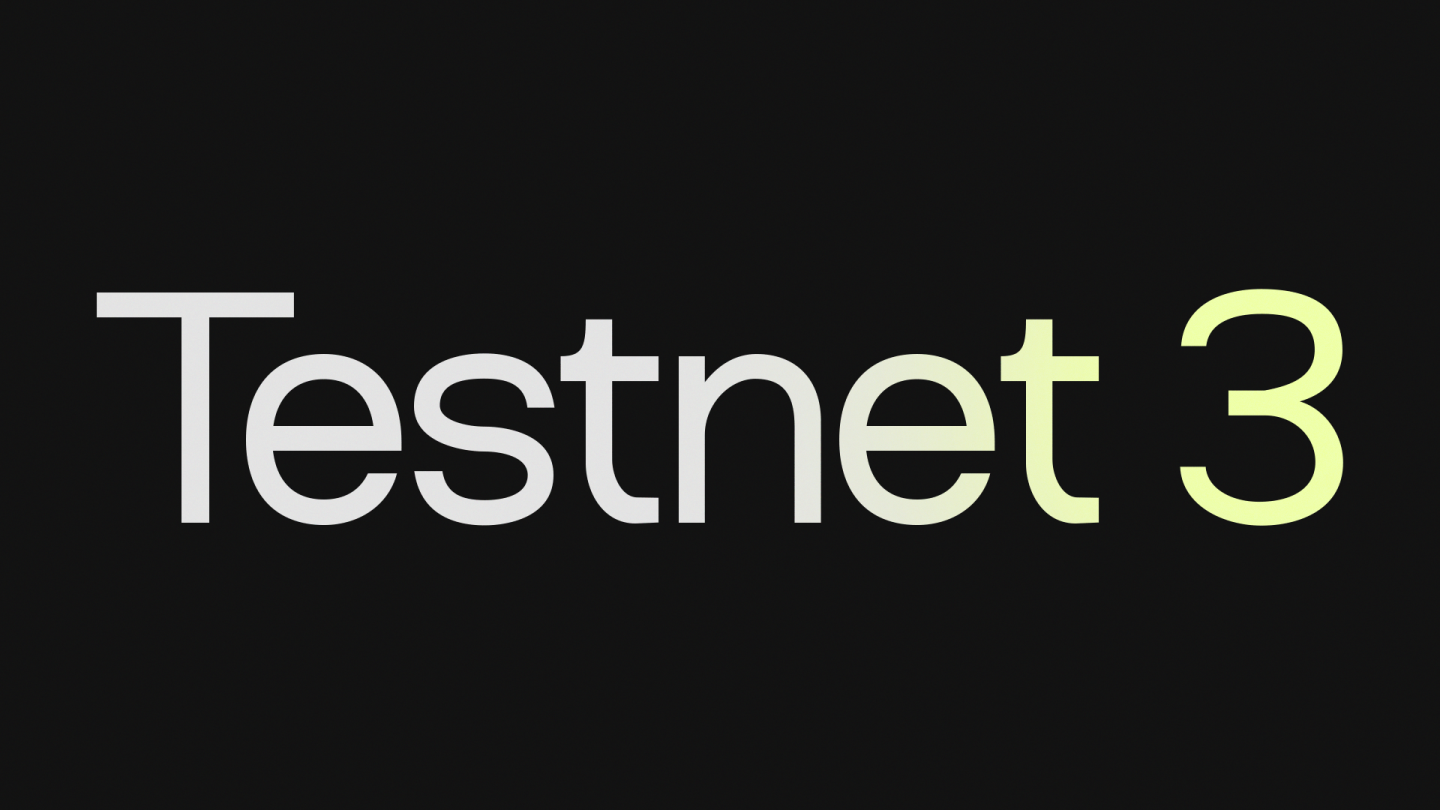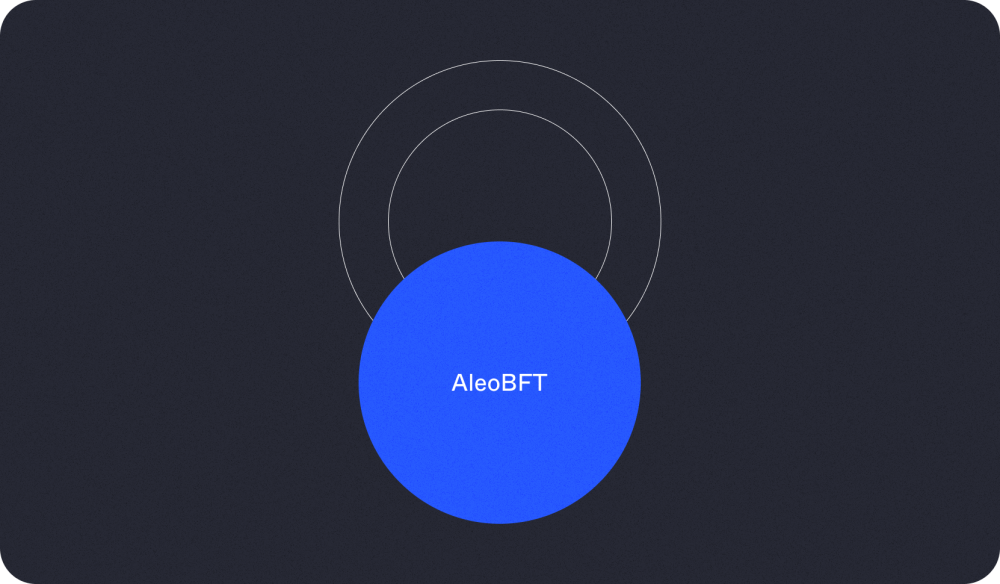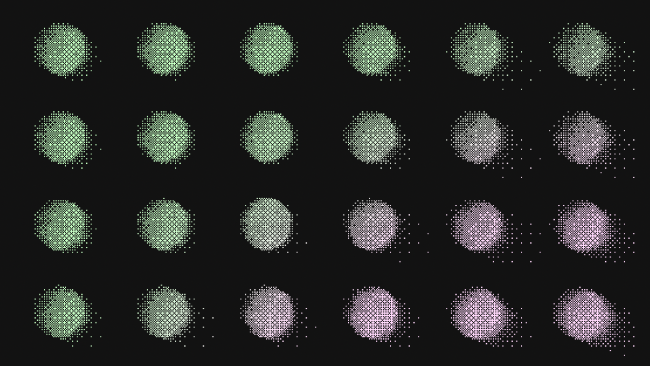Announcing Aleo Testnet 3

We are excited to announce the launch of Aleo Testnet 3. With this release, we're one step away from launching our mainnet and realizing our vision for an ecosystem of decentralized private computations as presented in our original Zexe research paper.
Today, Aleo is launching Phase 1 of Aleo Testnet 3.
We are excited to announce 25 million Aleo credits (ALEO) to be distributed across our community of developers, provers, and validators over 3 phases of Testnet 3. We also encourage hackers and enthusiasts of Aleo to participate in our forthcoming bug bounty program.

Aleo Testnet 3: Developers, Provers, and Validators.
Aleo Testnet 3 will be released across three (3) phases to our community. The following is a summary of the highlights for each phase.
Phase 1 - Developers
Developers can start writing, deploying, and executing programs.
The Aleo team bootstraps the network with genesis beacons.
Phase 2 - Provers
Provers start solving coinbase puzzles (PoSW) to earn credits.
The Aleo team kickstarts the bug bounty program for snarkOS and snarkVM.
Phase 3 - Validators
Validators start producing blocks and earning rewards.
Provers with 1 million Aleo credits will be able to become validators.
The Aleo team will bootstrap the network for Phase 3 with AleoBFT.
Note that the network will be reset periodically as needed during Aleo Testnet 3, based on findings from the bug bounties program.

Aleo Programs: Zero-Knowledge Applications Have Arrived.
In the coming week, Aleo Testnet 3 will be updated to allow developers to start writing, deploying, and executing Aleo programs on the network.
Here’s an early preview at some of the exciting features to come in Aleo Testnet 3:
Deploying and executing programs on the Aleo Virtual Machine (AVM)
Proving coinbase puzzles (PoSW) to produce new credits
Validating blocks and producing coinbase proofs with AleoBFT
Batch proving and verifying on our Marlin + Plookup proof system
Support for multi-signature wallet using FROST threshold signatures
Once developers have had the opportunity to deploy their first Aleo programs, the Explorer will be updated to begin showcasing applications from the network. We will invite our developer community to participate in judging for the top Aleo programs alongside the Aleo team.
For developers eager to learn how to write Aleo programs, join us at one of the many developer workshops in the coming months. As developers begin learning how to write Aleo programs, we encourage publishing Medium guides and blog posts to share how to set up and write Aleo programs.
Join us on Discord to stay tuned for the announcement of our developer contest rules and rewards.

AleoBFT: A New Hybrid Architecture for Consensus.
Over the course of Testnet 3, Aleo will be transitioning its consensus model to a hybrid architecture for provers and validators called AleoBFT.
AleoBFT combines the instant finality of new blocks from validators with the computing power of provers to introduce coinbase supply into the network. The design of AleoBFT incentivizes validators to preserve liveness by producing blocks, and incentivizes provers to scale proving capacity for the Aleo ecosystem.
A comprehensive blog post on AleoBFT will be released with Phase 3. However, we believe this transition is an important and exciting step for our ecosystem and we want to share it with our community now, in order for our developers, provers, and validators to prepare for these incoming upgrades. This transition will allow Aleo to achieve a fairer distribution of the network supply, and further incentivize decentralization while achieving strong performance guarantees.
First, AleoBFT guarantees instant finality for each block.
Transactions are confirmed once validators produce and achieve consensus for each block. This approach resolves issues of shallow forking for validators and improves node stability. In addition, this creates a smooth application experience for developers on Aleo. And for users, this improves UI/UX by enabling fast confirmation in wallets, browsers, explorers and applications. Lastly, this guarantee makes interoperability with other ecosystems a much simpler proposition.
Second, AleoBFT ensures the network remains sufficiently decentralized.
As Testnet 2 showed, block production became highly centralized after a small number of provers developed specialized hardware for zero-knowledge cryptography. While ZPrize is helping to level the playing field, the fact remains that a handful of entities would dominate the network, causing a risk of centralization and censorship for users.
By using AleoBFT, we are able to decouple the role of block production from coinbase generation. Validators are now in charge of producing blocks, and provers are now able to compute proofs at their desired scale. AleoBFT is designed to incentivize provers to become validators, by staking at least 1 million Aleo credits on the network. This guarantees provers can preserve their censorship-resistance by being a representative for all provers in consensus.
Third, AleoBFT incentives provers to scale proving capacity for the Aleo ecosystem over time.
In AleoBFT, provers solve and produce coinbase proofs (PoSW) on the network in exchange for a share of the coinbase reward in each block. With this new model, provers are now computing on the core subcomponents of zero-knowledge proofs – namely multi-scalar multiplications (MSMs) and fast-Fourier transforms (FFTs) – while earning their percentage share in proofs from each block reward.
For provers, AleoBFT allows operating any hardware at any scale to produce zero-knowledge proofs, without competing for a “winner-take-all” effect in each block. Thus, unlike in Testnet 2, this process means that even provers running on commodity hardware will be able to participate and earn coinbase rewards. These coinbase rewards are shared between provers and validators to incentivize provers to become validators as they accumulate tokens over time. By incentivizing a broader reward distribution for participants, we believe these new mechanics will scale the Aleo network to achieve far greater proving capacity for Aleo developers and users.

Aleo Mainnet: The L1 for Decentralized Private Applications.
As the Aleo ecosystem marches towards its mainnet launch, the Aleo team wants to share a huge thank you to every person in this community for making Aleo possible.
With this milestone, we want to celebrate the hard work that has been contributed by our 30,000+ Discord community members, our 100+ ambassadors, our 50+ apprentices, and our 30+ of maestros. You all have made this ecosystem a vibrant, organic, and decentralized community.
As we kickoff our final testnet, we want every community member to help make Aleo Testnet 3 a huge success in showcasing the power of our zero-knowledge cryptography.
The Aleo team will be hosting workshops in the countries our communities come from, and we hope you will reach out to us if you’d like to organize one with us. Your contributions have been and will be critical to the success of Aleo over Testnet 3, mainnet launch, and far beyond.
Over the coming weeks, the Aleo team will be publishing a series of blog posts to go in-depth about the incentives program and how they will work in detail. In addition, we will be updating our documentation pages to reflect the new features and technologies being released in Aleo Testnet 3.
We look forward to sharing this journey together in launching Aleo, the first decentralized platform for fully-private applications.
To stay up to date with the latest on Aleo Testnet 3 and our future developments, join us on Discord and follow us on Twitter.
